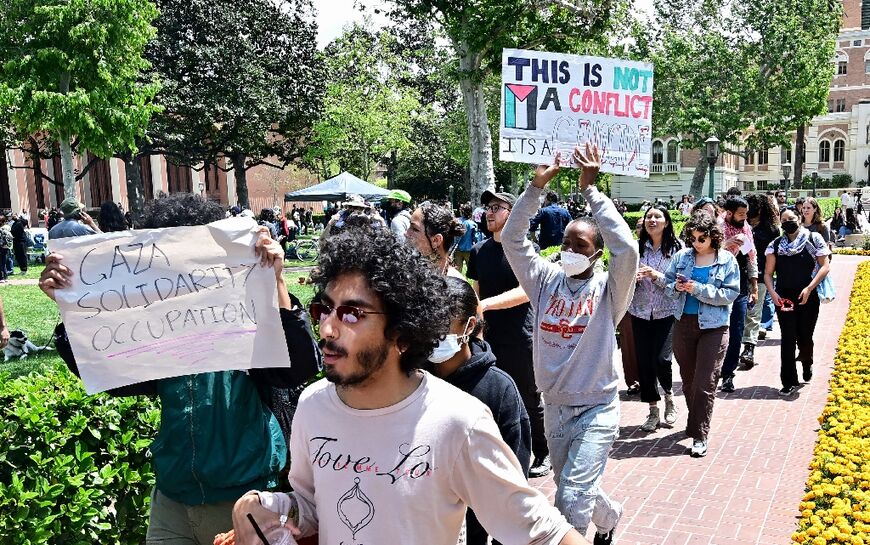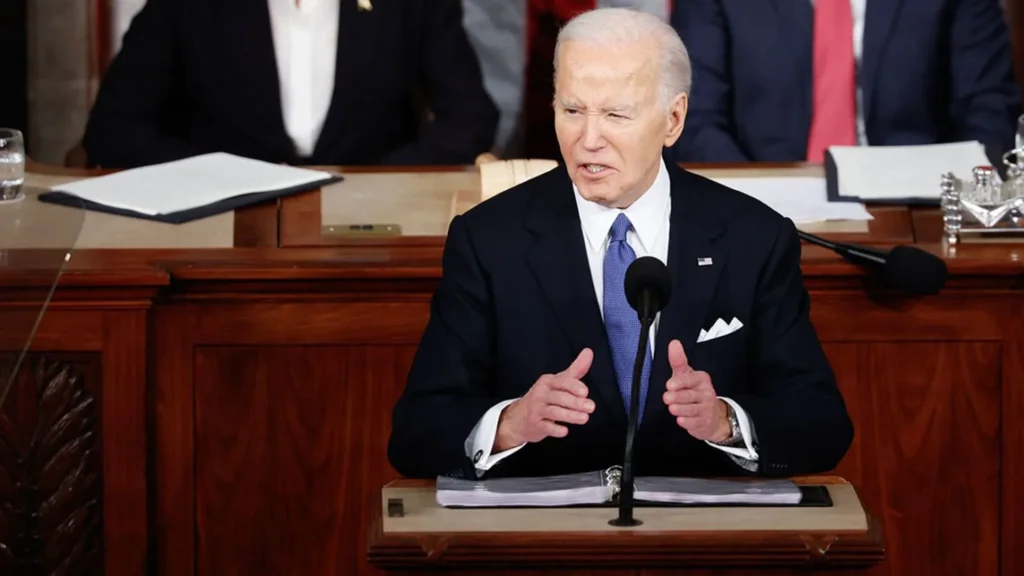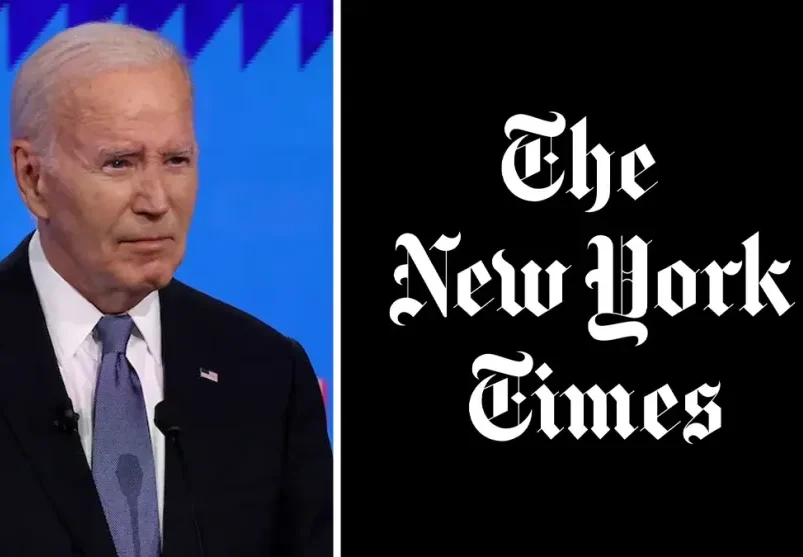Pro-Palestinian protests at U.S. universities
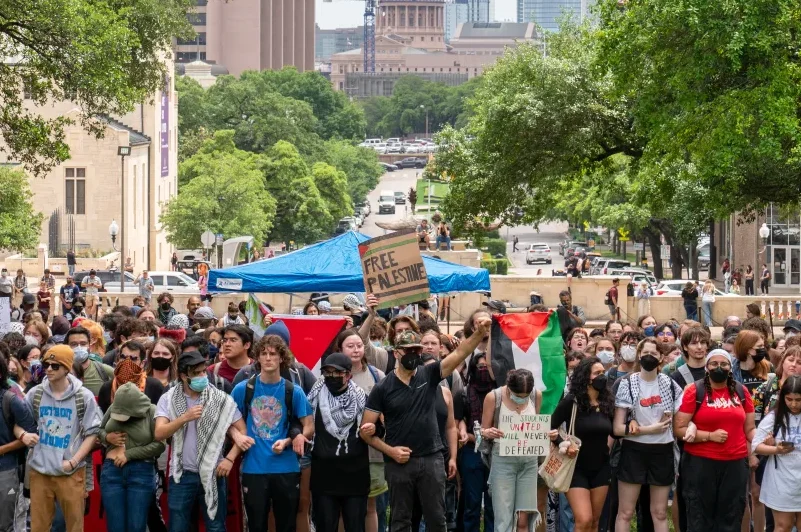
Pro-Palestinian protests at U.S. campuses continue to escalate, and tensions against Joe Biden’s administration are rising.
In this sense, the pro-Palestinian protests at U.S. universities in the face of the decision of the academic authorities to end the occupation of the campuses that began almost two weeks ago.
At Columbia and Cornell, yesterday, students who reject the eviction of the educational premises were suspended.
Meanwhile, pro-Palestinian protests at U.S. universities continued, while some 50 university students were arrested on campuses in Florida and Texas.
The students are demanding that universities divest from Israeli businesses or companies linked to Israel’s war effort against Hamas in Gaza, a demand that is being rejected outright by all U.S. academic institutions.
As a result, pro-Palestinian protests at US universities are on the rise and it is not ruled out that, in the end, the local police will force an eviction in the face of student resistance.
The epicenter of the pro-Palestinian protests at U.S. universities is Columbia University.
And its board announced yesterday that it was giving a peremptory deadline of 14 PM (New York time) to end the protests on campus.
READ MORE: THE U.S. EMBASSY IN ISRAEL: MAXIMUM PRECAUTIONS IN JERUSALEM.
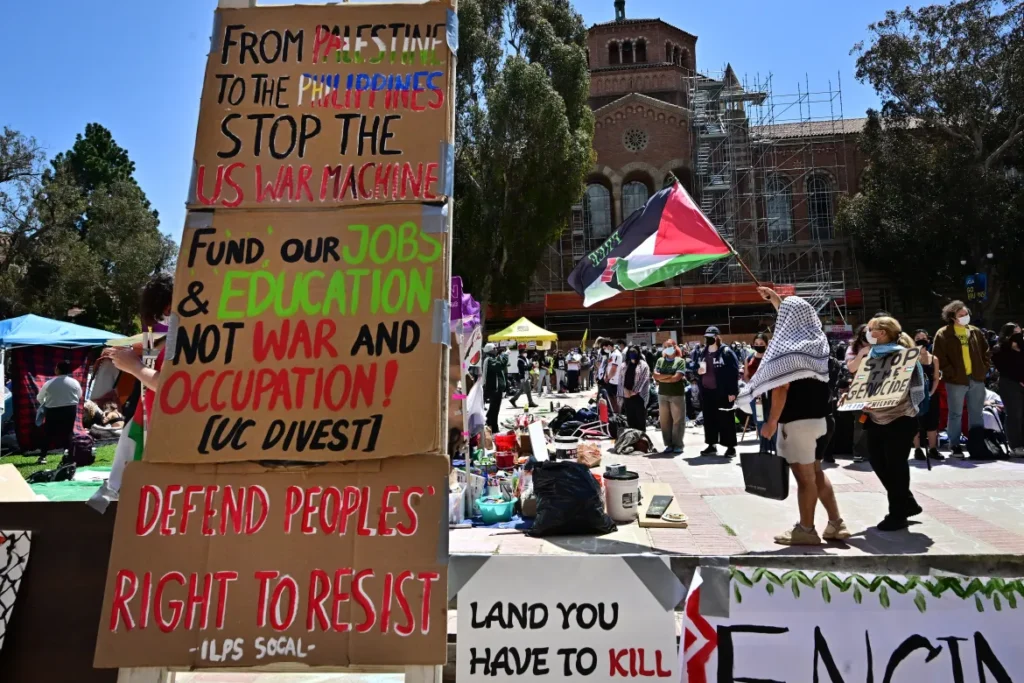
Pro-Palestinian protests at U.S. universities
In addition, the students were required to sign a protocol act in which they assured that they would respect the internal rules of the university in exchange for continuing their careers without administrative sanctions.
If the students did not comply with the peremptory deadline and did not sign the protocol, Columbia would execute an academic suspension.
This was a deterrent measure to prevent the New York police from forcing an eviction from university premises.
Such coercive action by the local police could not only aggravate the social conflict, but would also affect Columbia’s ethical values, which are based on the freedom to think differently without suffering reprisals or legal sanctions.
“We have been asked to disperse, but doing so is against the will of the students,” explained Sueda Polat, a student leader at Columbia, during a press conference.
At Columbia University, student resistance forced the administrative sanction to be executed.
On April 29, the identification of the university students who had remained in the encampment began, despite a warning from the educational authorities.
“We have begun suspending students as part of the next phase of our efforts to ensure the safety of our campus,” said Ben Chang, spokesman for the university, when asked by reporters.
While the tension was escalating at Columbia, the situation at Cornell was becoming more complicated: its academic council was demanding that the tents be removed, while the students were rejecting the official instruction. Faced with this situation, as was the case at Columbia, the identification of students for subsequent educational suspension began.
“Students requested and received multiple opportunities to consider their options, but ultimately decided not to move. With full knowledge of the upcoming sanctions, they again refused to comply and we moved forward with a first set of immediate temporary suspensions,” said Cornell head Martha E. Pollack, in an official statement.
And just as at Columbia, Texas, Florida, Princeton and Yale, Cornell students refused to accept the university board’s order and are leading pro-Palestinian protests on U.S. campuses.
Pro-Palestinian protests at U.S. universities are on the rise, and to date, there is no roadmap or negotiating table to end the educational conflict.
